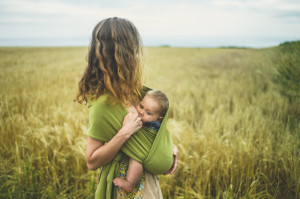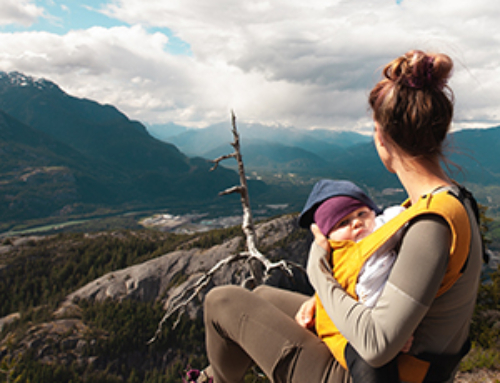
This can seem like an odd question to be asking people who have dedicated themselves to parenting gently, but I think it’s an important one. So often, we ignore the reasons behind our choices assuming they’re all pure, and we can find ourselves in a bit of a pickle later if the reasoning for our choices leads to inappropriate expectations. In the case of parenting gently, I do believe most people go here because they respect their child and want to treat them as they would be treated. Or perhaps wished they had been treated. The problem is not in thinking our children deserve respect, but about our expectations surrounding the experience and expression of negative emotions as our children get older.
You see, lots of families parent gently and they understand when their toddlers act out because they’re toddlers. They don’t get mad and they’re able to help their kids learn to better regulate their emotions. But then these toddlers become preschoolers or young children who still have negative emotions. They may even blow up sometimes or meltdown in the middle of a public place. They might even grow into adolescents who are less-than-always happy or may even sulk, slam the door, or tell you they hate you.
This is where gentle parents can struggle.
Many families parent gently under the misapprehension that parenting gently will somehow remove negative emotions as our kids get older. Or perhaps the expression of these negative emotions. Their children won’t hit or meltdown or get really angry because they allowed that when younger and that acceptance was supposed to lead to magical regulation skills, right? Thus when these same kids become older and struggle, parents can wonder what all that gentle effort was for.
We need to be sure we have the right goals. So what does a realistic goal of gentle parenting look like?
Our goal as gentle parents should never be to avoid negative emotions, but to teach our children that they are a part of life and how to cope with them in the moment and after.
This is harder than aiming for no negativity. This means being able to sit in the trenches with our kids as they scream and yell and allow them the space to release while making sure they know they haven’t lost a single ounce of our love for it. This means sometimes taking the brunt of their anger – even when it’s totally irrational – because we are their safe space. This means we are always engaged in ways of teaching them about their own emotions, regulation (not repression), and making amends. We don’t stop that when our kids turn some arbitrary age.
What does this mean about how we parent gently for the long-term?
- You are not just accepting all negative emotions without any teaching moments. We are our children’s teachers of emotion regulation and whenever they lose it, we have the opportunity to work on the very long process of helping them learn to cope when they can. This means that outbursts are first met with co-regulation to help our kids settle and as they get older, we help them by teaching them active regulating skills for when they are feeling overwhelmed.
- You are teaching your kids and yourself about our zones of regulation. That bit above about “when they can” is crucial here because we all have zones of regulation – that emotional state when we can regulate ourselves, but outside of which, we can’t. When our kids are young, this zone is tiny, but as they get older it starts to get bigger. Of course this depends on your child’s temperament too, with orchid kids having a much smaller zone due to their hyperreactivity to stress. But what we all need to remember is that we all have that space outside that zone where we won’t be able to control things. And we will need others to help us. The more we understand that this help is necessary, the easier it is to accept these moments at any age and not feel anger or disappointment or shame in ourselves for not having better control.
- You are teaching that negative emotions are a part of life. The more we fight against negative emotions – and even the outbursts that come with them – the harder it becomes to accept them in other people. Accepting and understanding these emotions in ourselves often means we can then accept and help our kids (or partners or friends or any other adult) in their time of need. What we also then get to focus on is not how the emotion was bad, but rather we learn how we can best express it in a way to not repress, but also not harm others.
- You are teaching how to say sorry, make amends, and forgive. We all lose our shit. We do, so the next best thing is to help our kids learn how to honestly apologize and make things better. This starts when they’re young and can see that they have hurt someone. Kids will naturally be inclined towards this if we don’t block it or ask them to do things beyond their capacity. For example, saying sorry is something abstract that means nothing to them, but asking them how they can help someone is something they get and builds empathy. Equally important is helping our kids learn that we forgive them so they can turn around and forgive someone else down the line.
So please, don’t parent gently to avoid negative emotions. Parent gently so we have a generation of children that don’t feel shame when they feel angry. A generation who understands that sometimes we need to help others when they’re in a negative state instead of shunning them. A generation that will have a far better chance of having emotionally healthy relationships because they aren’t afraid of their own emotions. That’s should be the goal of every gentle parent.






Leave A Comment